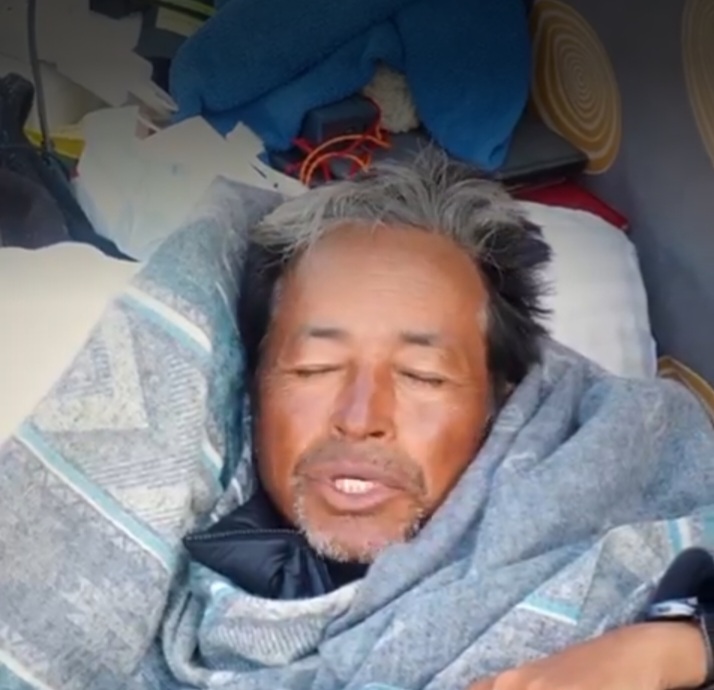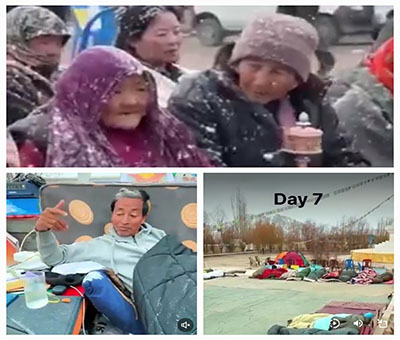SHIMLA/LEH; Ladakhi innovator Sonam Wangchuk's crusade for the protection of his homeland has taken a desperate turn.
On the end of 16th day of his grueling Climate Fast Unto Death, Wangchuk emerged from his open sky bed to expose the chain of events that led him and his supporters to resort to the fast amid a backdrop of chilling indifference from the Central government.
With temperatures plummeting to -15 degrees Celsius, over 1000 to 2000 individuals brave the elements each night alongside Wangchuk, their resolve unwavering despite the toll.
Their message echoes through the icy winds, a plea for the government to uphold its duty to the indigenous tribes of Ladakh, ensnared in constitutional neglect.
Wangchuk's voice, weakened by hunger and the frigid mountain air, resonates with urgency as he implores the government to heed the cries of his people.
"For four long years, we have been pleading the government to safeguard Ladakh's heritage," he laments, recounting the hope that accompanied their electoral victory- victory of BJP in all elections.
Yet, as months turned to years, the government's promises faded into rhetoric, leaving disillusionment in their wake.
Addressing the government directly, Wangchuk lays bare the betrayal suffered by Ladakhis in the wake of unfulfilled assurances.
Amidst his scathing critique, Wangchuk offers rare praise for Prime Minister Modi's mission LIFE, applauding his efforts in promoting simplicity and environmental consciousness.
"I have been a big fan and supporter of You," he refers to PM Modi, juxtaposing this admiration with the government's failure to address Ladakh's plight.
"Your party's manifesto pledged to protect Ladakh under the Sixth Schedule," he reminds, recounting the hope that accompanied their electoral victory.
Yet, as months turned to years, the government's promises faded into rhetoric, leaving disillusionment in their wake.
Despite repeated pleas and futile meetings, the government's response remained stagnant, mired in bureaucratic inertia.
Wangchuk recounts the endless cycle of promises deferred and commitments abandoned, each meeting a mere charade of progress, devoid of substance or resolve.
As his health deteriorates under the relentless onslaught of hunger and cold, Wangchuk's desperation is palpable.
"We had only one recourse left – agitation," he declares, his voice a rallying cry against the silence of those in power.
Yet, amidst the backdrop of Wangchuk's fading strength, the government's silence looms ominously.
Civil society watches with bated breath, acutely aware of the stakes should Wangchuk's health falter.
For in him resides not only an innovator, but a beacon of hope for a community fighting to reclaim its voice in the face of indifference.
As Wangchuk's fast stretches into its perilous depths, the nation holds its breath, grappling with the unsettling reality of a government's disregard for the plight of its people.






